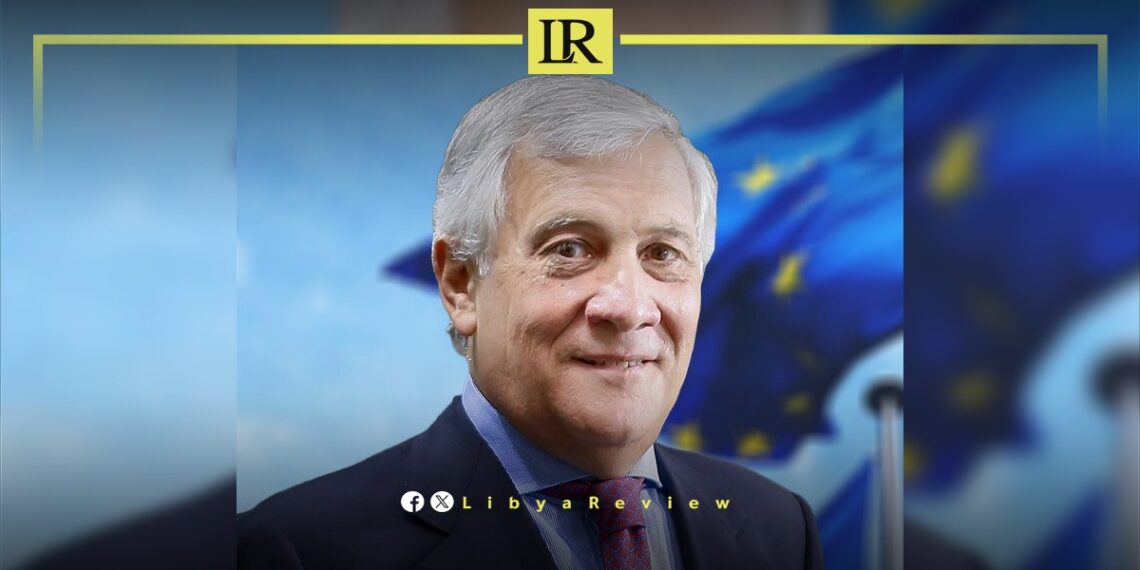On Thursday, Italian Foreign Minister Antonio Tajani highlighted Libya’s critical role in ensuring the security of the Mediterranean region.
In an interview with the Italian news outlet “Sussidiario,” Tajani underscored Italy’s commitment to stabilizing Libya and supporting ongoing United Nations mediation efforts to bring lasting peace to the country.
Tajani called for urgent presidential and parliamentary elections in Libya, stressing that these steps are vital for stabilizing the nation. He also emphasized the importance of enhancing cooperation to address the ongoing challenges posed by illegal migration across the Mediterranean, a pressing issue for both European and North African countries.
“Libya is a crucial element for Mediterranean security,” Tajani stated, noting that Italy has been actively engaged in supporting Libya’s path to stability. He pointed out that less than a year ago, Italy contributed €350,000 in immediate funds as part of the United Nations’ humanitarian response to the crisis in Libya. Tajani emphasized that the Italian government has been closely monitoring the situation on the ground, maintaining regular contact with Libyan authorities, international agencies, and other key partners to ensure coordinated efforts.
Discussing the ongoing political deadlock in Libya, Tajani referred to the rivalry between the Government of National Unity led by Abdulhamid Dbaiba and the Libyan government led by Osama Hammad, appointed by the House of Representatives. He stressed the need to overcome this impasse and reiterated Italy’s commitment to addressing the root causes of migration.
“We must intervene, as we are doing, by tackling the root causes of migration movements,” Tajani explained, highlighting Italy’s partnerships with countries of origin and transit within the framework of the Mattei Plan for Africa and the Rome Process on Migration and Development.
The Italian Foreign Minister also underscored Italy’s ongoing efforts, in collaboration with North African countries, to combat the criminal networks involved in human trafficking. He called for the development of legal and safe migration routes as a complementary approach to addressing the issue of illegal migration.
Tajani further noted the deep connection between the crisis in the Sahel region and the ongoing conflict in Libya. He emphasized that Italy, along with its European partners, is working to extricate these nations from the influence of various international powers that are vying for control in this strategically important region.
Libya’s strategic location and its proximity to Europe have made it a central focus for discussions on Mediterranean security and migration. The country’s ongoing political instability has significant implications for regional and European security. Italy, given its geographical closeness to Libya, has a direct interest in the stability of the region.


